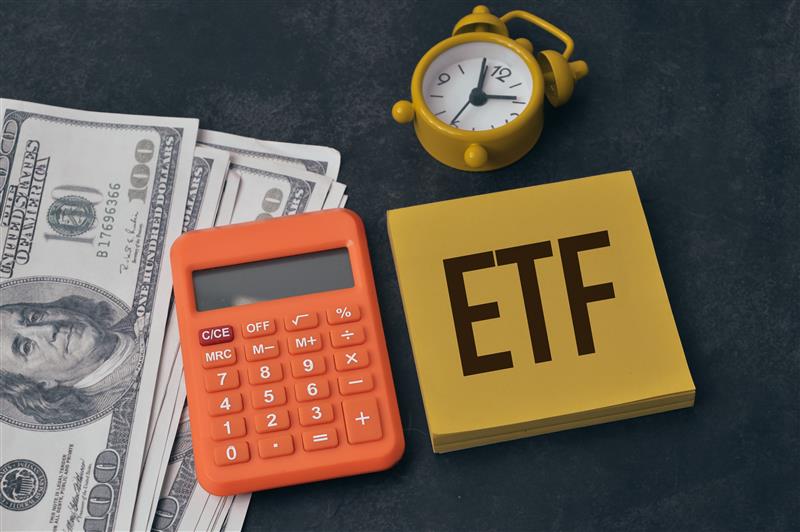
Smart Beta ETFs: Smarter Investing or Just Another Trend?
Smart Beta ETFs are often described as the middle ground between passive and active investing. They follow an index, but not in the usual way. Instead of simply copying the market’s biggest companies, they follow a set of rules designed to improve performance or reduce risk.
They’ve been gaining popularity because investors want more than just average returns. People are looking for strategies that feel active but come with the transparency and lower costs of an ETF. That’s where Smart Beta comes in.
What Exactly Is a Smart Beta ETF?
At its core, a Smart Beta ETF is an exchange-traded fund that uses a rule-based approach to pick and weight the stocks in its portfolio.
While traditional ETFs are often weighted by market cap, Smart Beta ETFs use different factors to decide how much of each stock to include. These factors could be anything from how cheap a stock looks compared to its earnings to how stable it’s been during market swings.
The idea is to beat the market over time or at least handle risk better.
The Common “Smart” Factors
Smart Beta strategies usually revolve around a handful of well-known investing ideas, also known as factors.
Here are the most common ones:
- Value: Companies that appear underpriced based on financial metrics
- Momentum: Stocks that have been going up and are expected to keep going
- Quality: Companies with strong balance sheets and consistent profits
- Low Volatility: Stocks that don’t bounce around too much
- Size: Focusing on smaller or mid-sized companies instead of just the giants
- Dividend Yield: Targeting companies that regularly pay and grow dividends
Some ETFs focus on just one of these, while others mix a few to balance the strengths and weaknesses of each.
How Smart Beta Differs from Traditional ETFs
The key difference is how stocks are chosen and weighted.
In a regular ETF tracking the S&P 500, companies like Apple or Microsoft take up more space simply because they’re big. In a Smart Beta ETF, you might see a more even split, or more weight given to companies with high dividends or low debt.
This changes the risk profile and potential return. In some market conditions, it can lead to better performance. In others, not so much.
Why Investors Like Them
There are a few reasons Smart Beta ETFs have become more popular:
- They offer a strategy: Instead of just following the market, they let you lean into specific investment themes
- They’re rules-based: There’s a clear, transparent formula behind them
- They cost less: Compared to actively managed funds, they’re generally cheaper
- They’re easy to buy: You can trade them just like any stock or ETF
For investors who want a more thoughtful approach without having to pick stocks, it’s an appealing mix.
But There Are Risks
Smart Beta isn’t magic. Some strategies are built on what worked in the past, which doesn’t always mean they’ll work in the future. That’s called backtesting bias.
Factors also move in and out of favor. A value-focused ETF might underperform for years if growth stocks dominate the market.
And because many Smart Beta funds rebalance frequently, they can have higher turnover, which may lead to more taxes or trading costs.
Choosing the Right Smart Beta ETF
If you’re thinking about adding one to your portfolio, here’s what to keep in mind:
- What’s your goal? Do you want income, lower risk, or more growth?
- Which factors matter to you? Some work better in certain market conditions
- Check the fees and past performance — but remember, past success doesn’t guarantee anything
- Stick to known providers like iShares, Vanguard, or Invesco for reliability and transparency
Who Should Consider Smart Beta ETFs?
They’re a good fit for long-term investors who want to be more strategic without going full active.
They also suit investors who don’t love the idea of weighting everything by size. If you want more control over what drives your portfolio’s performance, Smart Beta gives you that without having to pick and manage stocks yourself.
Dividend-focused or low-volatility Smart Beta ETFs can also appeal to income-seekers and more cautious investors looking to smooth out the ride.
Smart Beta ETFs offer a more tailored, strategic approach than traditional index funds. They won’t suit everyone, but for investors who understand the factors and are looking to go beyond market-cap weighting, they can be a powerful tool.
Just like any investment, they come with trade-offs. But if you’re willing to learn how they work and choose carefully, they can bring something genuinely useful to the table.